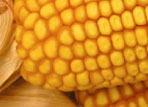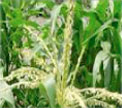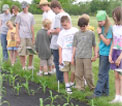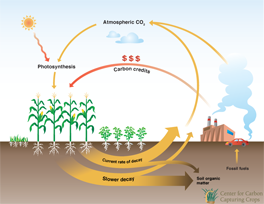Global climate change is one of the most challenging and important issues facing our species. A major driver for these changes is occurring due to rising levels of atmospheric carbon dioxide (CO2). By upsetting the balance between plants and the climatic conditions to which they have been adapted, these changes threaten both agricultural and natural ecosystems. Hence, there is an urgent need to develop methods to reduce atmospheric levels of carbon dioxide. The Center for Carbon Capturing Crops (C2C2) is conducting discovery and translational research needed to develop crops that are capable of sequestering atmospheric carbon.
Through the process of photosynthesis crops extract carbon from the atmosphere and incorporate it into biomass. After harvest, crop residues are converted into soil organic matter. Over time soil microorganisms digest the organic matter, returning the captured carbon to the atmosphere as carbon dioxide. The Center for Carbon Capturing Crops is leveraging the federal government's investments in crop genomics to develop crops having biomass that degrades more slowly in the soil than unmodified crops.
The widespread planting of carbon capturing crops will increase the amount of carbon stored in the soil. Increased storage of carbon in the soil will reduce levels of atmospheric carbon dioxide and increase soil organic matter. In addition, farmers who grow these carbon-capturing crops may earn additional carbon credits. Carbon credits are tradable securities that place a cost on carbon emissions and can be sold to carbon emitters, such as coal-powered electric stations.
In addition to developing crops having enhanced biomass characteristics, the C2C2 is working with soil and atmospheric scientists and economists to model the effects of widespread planting of carbon-capturing crops on soil organic matter, atmospheric carbon, climate and the economy. The results of these modeling activities will be widely disseminated to help guide policy decisions that will influence carbon sequestration and climate change. Ultimately, the C2C2 will partner with seed companies to deploy carbon capturing crops.








